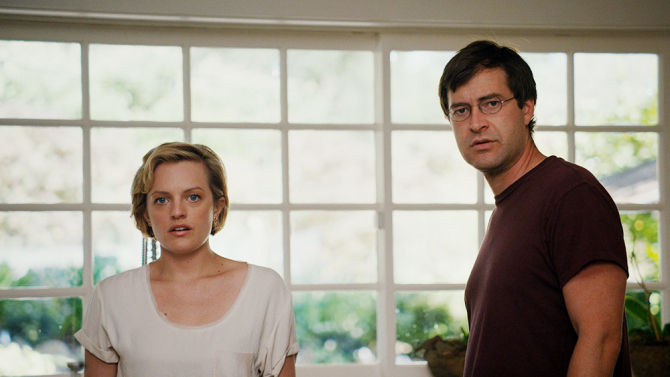some thoughts on The One I Love
It’s a fairly common occurrence for me that a young talent will come to me and ask me how to break into the biz. Since I’ve made several movies, make my living as a full-time writer and still don’t know “how to break into the biz,” I’m never sure what to say.
I do know this: it’s hard to get a movie made. The maze an idea has to go through from idea to multiplex is so long, so convoluted and so fraught with peril, that almost no ideas whatsoever make it all the way. The multiplex hit is a property designed from the top down, the corporation that owns the studio says “We need to see X amount of profit, or you’re out of business.” The studio then says “We need to take zero risks in our release schedule, we can only make huge movies that will play well internationally and will bring in lots of money through ancillaries for a long long time.”
So, if you’re a young talent and you’re expecting to “break into the biz,” the odds are stacked hugely against you. The studio is giving the jobs that matter to people who have already proven themselves to be talented filmmakers.
And so, the thing I say to the young talent who wants to break into the biz is: “Make your own work.” No one is going to give you a job writing or directing a movie; write and direct the movie yourself.
It’s never been easier. Cameras are dirt cheap, computer memory even cheaper, and your phone probably has an editing program more sophisticated than AVID. And the internet is right there, demanding to be fed content every day, 24 hours a day.
If you’d like an example of the perfect movie to make, go see The One I Love. It has one location, two actors, and a lovely corkscrew of an idea that means that the one-location, two-actor movie doesn’t feel like a play. It’s a movie, and it could only be a movie.
I’m glad that The One I Love has the production values it does, but whatever its budget was, it could have been lower. It could have been nothing. The script could have been shot with a consumer-level camera in a single apartment. The movie is in the idea. Because the idea is so strong, the script could have withstood almost any production values at all and would still have worked narratively and dramatically.
Point is, production values are nice and all, but the first thing you need is a great idea that gives rise to a great script. Stick to those things and you don’t need car chases, alien invasions, “great cinematography” or anything else, you’ll be on your way. And you don’t have to shoot it in a house, just about everyone has a unique location available to them. If you have a boat, write a movie that takes place on a boat. If you have an RV, make a movie that takes place in an RV. If you have an abandoned castle nearby, use that. The movie Killing Zoe got made because the producer had access to an abandoned bank that was about to be demolished, so he asked Roger Avery to write a movie that takes place in a bank.
Use what ever is around you, and use your lack of funds to your advantage. Start with an idea, write a movie that’s simple to shoot, and shoot it. Then you’ll have a movie people can see, and if you’ve done your job you won’t need to break into the biz, the biz will come looking for you.
